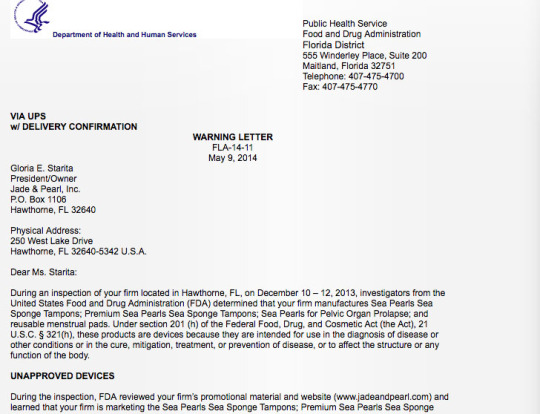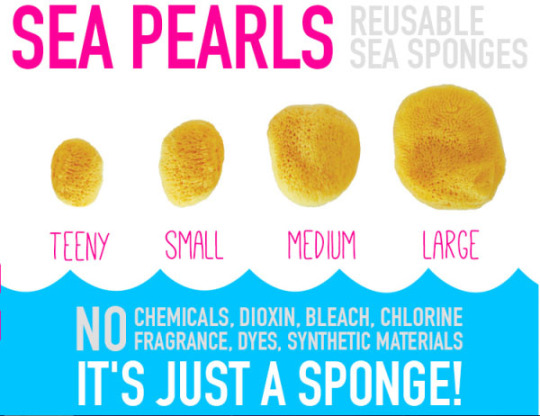Photo


no make up v make up
10/10 either way
51 notes
·
View notes
Video
705K notes
·
View notes
Text
Am I lazy or is this another Depression Session™
388K notes
·
View notes
Link
From the essay:
As a general proposition, police are allowed to lie. The lies told by the police to a suspect under questioning do not render the confession involuntary per se. Mere trickery alone does not invalidate a confession. The court must look to see whether the deception is reasonably likely to produce a false confession. People v. Farnam (2002) 28 Cal.4th 107;Hawkins v. Lynaugh (5th Cir. 1988) 844 F.2d 1132
The list begins by explaining that police can even lie about having already obtained physical evidence — such as DNA or fingerprints — from a crime scene, and expounds on a number of other police bluffs, complete with actual example cases:
(1) They Can Lie About Physical Evidence
“We have your fingerprints.”
“We have your DNA.”
Fingerprint and DNA analysis requires time, and county crime labs are notoriously backlogged. If you have been arrested as a suspect for a crime that was recently committed, it is highly unlikely that police have fingerprints from the scene of the crime, at the time of interrogation.
Consider the following true story:
The defendant voluntarily came to the police station and was told he was not under arrest. The officer told the defendant that his fingerprints were found at the scene, a lie. The defendant then confessed to taking the property. Oregon v. Mathiason (1977) 429 U.S. 492
The 6th District described the practice of police lying about having DNA, “a regrettable but frequent practice of law enforcement was not unconstitutional,” citing to People v. Jones (1998) 17 Cal.4th 279, 299 – which allow police deception as long as it is not unlikely to produce an untruthful confession.
(2) They can trick you into giving up your DNA
“Would you like something to drink?”
If you are arrested for a serious crime (read: violent crime), a DNA swab is now part of the normal booking routine. However, the police may also try and trick you into surrendering your DNA by offering you a soda, cup of water or coffee. A positive DNA match to an active crime scene is usually sufficient for an arrest and a charge. Police are even allowed to go through your garbage to obtain your DNA and other evidence. Maryland v. King (2013) 133 S.Ct. 1958; California v. Greenwood (1988) 486 U.S. 35
(3) They can give you fake tests to “prove you’re guilty”
“You failed the polygraph.”
“You failed a chemical test.”
Consider the following true story:
A suspect requested a polygraph test, and the police hooked the suspect up to a fake machine. During the questioning, the suspect denied any involvement in the crime, then the police show the defendant a fake graph from the fake machine, and say the suspect is lying. The suspect thereafter admits being present at the scene of the crime – The court ruled the defendant’s admission is a voluntary and admissible confession. People v. Mays (2009) 173 Cal App. 4th 1145.
Another true story:
“In the first step of the “test,” the detectives sprayed defendant’s hands with soap and patted them with a paper towel. In the second step, they used a field test kit used for testing substances suspected of being cocaine, which the detectives knew inevitably would turn color. The detective told defendant that the test had provided proof that defendant had recently fired a gun.” People v. Smith (2007) 40 Cal.4th 483; People v. Parrison (1992) 137 Cal.App.3d 529, 537
(4) They can lie about having an eyewitness to the crime
“An eyewitness identified you.”
True Story:A defendant was brought to a police station and advised of his Miranda rights. Defendant waived his rights, gave a statement, and then asked for an attorney. As the detectives picked up their books to leave the room a detective tells the defendant that the victim identified a picture of the Defendant as the one who stabbed and raped her. At the time, the victim had not seen any photographs. The defendant subsequently confessed. People v. Dominick (1986) 182 Cal. Ap. 3d 1174.
(5) They can lie about recording your conversation
“I’m turning the recorder off, this is just between you and me.”
“This is off the record.”
There is nothing requiring a police officer to disclose the presence of an already-activated tape recorder. In fact, there may be more than one recording device in the room, and the police may turn one of those devices off and say, “this is just between us,” or “this is off the record.” Remember that when speaking with the police, there is no “off the record.” People v. Sims (1993) 5 Cal. 4th 405.
(6) They can lie about having an accomplice’s confession
“Your friend sold you out and told us everything”
The police are permitted to lie and tell you that your accomplice confessed. Detectives could place both Frazier and his cousin at a bar where a victim was last seen alive. Both Frazier and the cousin were arrested. Police lied to Frazier during the interview that his cousin confessed and told them everything. Frazier made statements that he and his cousin were at the bar. Those statements were used to convict him. Frazier v. Cupp (1969) 394 U.S. 731.
The police are even permitted to show you a forged confession from your friend/accomplice to try and trick you into confessing. People v. Long (1970) 6 Cal. App. 3d 741
(7) The police can imply that co-operation will lead to leniency
“We already know what happened, but if you obstruct our investigation the DA will be a lot tougher on you.”
Police cannot make threats or a promise of lieniency. It’s a true statement – you can be criminally charged for lying to the police. The police are prohibited from making threats or promises to induce a confession – but that does not mean that they will not threaten you or make you false promises. Police break the rules all the time. Your best defense is to remain silent and wait for a lawyer.
What most people don’t realize is that the police do not charge you with a crime – only the district attorney can make that decision. In the vast majority of cases a DA does not know anything about the case until the date of arraignment where they first pick up the file and read a police report. When a DA reads the file for the first time one of the key pieces of evidence they are looking for is if you made any statements (that is the one thing that makes their job the easiest). United States v. Santos-Garcia (8th Cir.2002) 313 F.3d 1073, 1079 (noting that raised voices and suggestions on how to gain leniency do not render a confession involuntary).
(8) They can lie about what will happen to other people.
“Your friend will spend their life in jail if you don’t tell us what happened.”
The police can lie to you and say that your friend will go to jail for the rest of their life. HOWEVER, they cannot threaten a family member with harm or removal from the home. While the court permits a number of coercive tactics, threatening your family is considered the type of threat that is likely to produce a false confession. “A threat by police to arrest or punish a close relative, or a promise to free the relative in exchange for a confession, may render an admission invalid.” People v. Steger (1976) 16 Cal.3d 539, 550.
(9) They can lie about your ability to defend yourself from a criminal charge.
“We know what happened, the best thing for you is to tell us how write it up in your favor and we will help you out.”
“We have enough evidence to charge you – this is your only opportunity to tell your story.”
Police do not “charge” you with a crime. They write a report and the District Attorney reads the report. The district attorney then decides to either file a charge, or not file a charge depending on the strength of the case. The hardest cases to prosecute are the ones where the Defendant has said NOTHING. The less you say to the Police, the better off you are at avoiding a charge.
Defendant and his accomplice were wanted for a murder. Officers already had a full confession from defendant’s accomplice, blaiming the killing on defendant. Police lied and told the Defendant they have enough evidence to charge him with murder. The defendant told the police his friend actually did the murder. His statements were used against him to place him at the scene of the crime, and as an accomplice. Defendant was ultimately convicted of murder. When the police tell you they will help you out, they are lying. Their only job is to investigate a case. The police will never help a suspect/person do anything but incriminate themselves. People v. Gurule (2002) 28 Cal.4th 557
(10) They can ignore your request for a lawyer
There is an evidentiary loophole that allows voluntary statements, given in violation of Miranda, to be useable in court for impeachment purposes (challenging the defendant’s credibility).
True story: Strategically, police officers made an agreement prior to interviewing the defendant, that they would continue questioning Defendant if he invoked his right to an attorney. They knew that anything the Defendant said could not be used to prove his guilt, however anything the defendant said is admissible as “impeachment evidence,” – which is evidence that tends to show that the Defendant is falsely testifying.
Defendant requested a lawyer 11 times over the course of a 4 hour interrogation, but each time after requesting a lawyer, the police ignored the request and asked another question to which the Defendant answered – and then resumed questioning. He then later admitted a rape and double homicide to police. He never saw a lawyer. Court found the defendant was not subjected to physical or psychological mistreatments and is mature and has had past criminal experience and that his statements were therefore voluntary and admissible. People v. Jablonski (2006) 37 Cal.4th 774
16K notes
·
View notes
Text
From a very young age, people are taught that an oppressed person being impolite is a much worse offense than a privileged person being violent.
125K notes
·
View notes
Photo




The birth and death of a modern romance ❤ 💔
Patreon + Twitter + Instagram
66K notes
·
View notes
Photo

There will never be a better headline.
2K notes
·
View notes
Text
when you say "asian people are so cute!!"
• you are being racist
• you are most likely excluding non-East Asians from this statement (aka you’re ignoring southeast, west, central, north, and south asians)
• you’re fetishizing our whole entire race (see bullet point #1)
• you’re not “appreciating asian culture”
• you’re not complimenting us
• you’re being gross and probably cant even name 5 countries in asia tbh
• see bullet point #1 again
48K notes
·
View notes
Text
Glamour gives risky period advice, recommends dangerous sea sponges
Dr Jen Gunter
Of course I clicked when this tweet from Glamour came across my timeline.

The article mentions the following four products: washable period underwear, washable pads, menstrual cups, and sea sponges. The first three are great, but menstrual sponges are not.
This is what Glamour said about sponges:
Yup, you can stop your period before it exits the premises by putting a sponge up there. Menstrual sponges like those that Jade & Pearl and Jam Sponge offer actually look a lot like bath sponges, and they work the same way. The only disadvantage is that they may be a bit cumbersome and messy to get out. But they are good for the environment and your wallet, since you only have to change them every six to 12 months.
This is dangerous advice.
Sea sponges aren’t “like” bath sponges they ARE bath sponges. Some people promote them as “natural” alternatives to menstrual tampons, except they are untested and potentially very unsafe. Oh yeah, they are also filled with dirt.
According to the Food and Drug Administration, twelve “menstrual sponges” were tested at the University of Iowa in the 1980s and they and contained sand, grit, bacteria, and “various other materials.” Another batch was tested by the Baltimore district laboratory and in addition to the sand, grit and bacteria they also found yeast and mold. One sample contained Staphylococcus aureus (the bacteria that causes toxic shock syndrome). As the FDA notes there is least one case of toxic shock syndrome associated with the sea sponge and another possible one.
The grossness of a debris and “various other materials” containing vaginal sponge aside there are real potential safety concerns. Bits could break off and become a nidus for bacteria, the sponge itself could have harmful bacteria, sponges may change the vaginal ecosystem promoting the growth of good bacteria, the inability to clean them adequately between uses may reintroduce potentially harmful bacteria that was breeding in the wet sponge sat drying beside the sink, and the sponge may cause abrasions during insertion and/or removal.
Menstrual products, sea sponges included, are regarded by the FDA as “significant risk devices requiring premarket approval under Section 515.” Basically, you have to study any products that is new and prove it is safe.The concerns about sponges were so significant the FDA contacted the manufacturers of menstrual sponges to warn them of the risks and to require they stop marketing and selling the products. Some closed down, others relabeled their products for “cosmetic” use. By they way there weren’t just a few businesses selling sponges, the FDA visited forty-one businesses that packaged sponges as well as 500 retail establishments.
One of the companies suggested as a source of menstrual sponges by Glamour is Jade & Pearl who received a warning letter from the FDA in 2014 about marketing menstrual sponges (if you read the full letter you’ll see that Jade & Pearl actually had a whole list of FDA violations).

This is how Jade & Pearl advertises their sponges right now, but it’s pretty genius marketing to get Glamour to tell everyone that your product is potentially not just for cosmetic uses! See FDA, it’s “just a sponge.”

Sea sponges are potentially very unsafe.
Really, I can’t emphasize that enough. There are lots of very biologically plausible ways they could harm women andGlamour magazine should be ashamed for including them without the most basic of research. It makes you wonder if Google was just not working the day the piece was written or if it was sourced only from press releases.
I’m the expert and I say women should not use sea sponges in their vagina. They are potentially very dangerous. They don’t even have the most basic of safety testing. Glamour should know better and I urge them to print a correction and remove the offending paragraph.
27K notes
·
View notes
Video
When you and the Taco Bell guy connect on a whole new level
194K notes
·
View notes
Conversation
the signs at their worst
Aries: hot headed, irrational, impulsive, easily angered, self involved
Taurus: lazy, unmotivated, passive aggressive, stubborn, materialistic
Cancer: passive, emotional, mood swings, flaky, self pitying
Gemini: obnoxious, arrogant, loud, rude, blunt
Leo: loud, conceited, self obsessed, head strong, materialistic
Virgo: overly critical, passive aggressive, stubborn, obsessive, cold
Libra: indecisive, superficial, moody, impatient, aggressive
Scorpio: moody, manipulative, closed off, emotional, possessive
Sagittarius: impulsive, reckless, blunt, impatient, insensitive
Capricorn: controlling, judgemental, bossy, conceited, petty
Aquarius: stubborn, detached, unreliable, manipulative, passive aggressive
Pisces: aloof, over sensitive, impatient, lazy, escapist
13K notes
·
View notes












